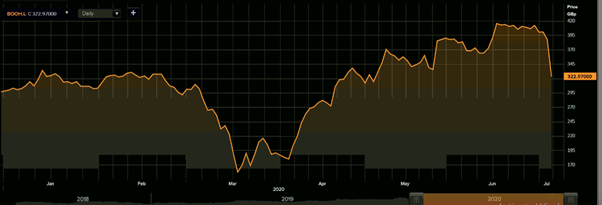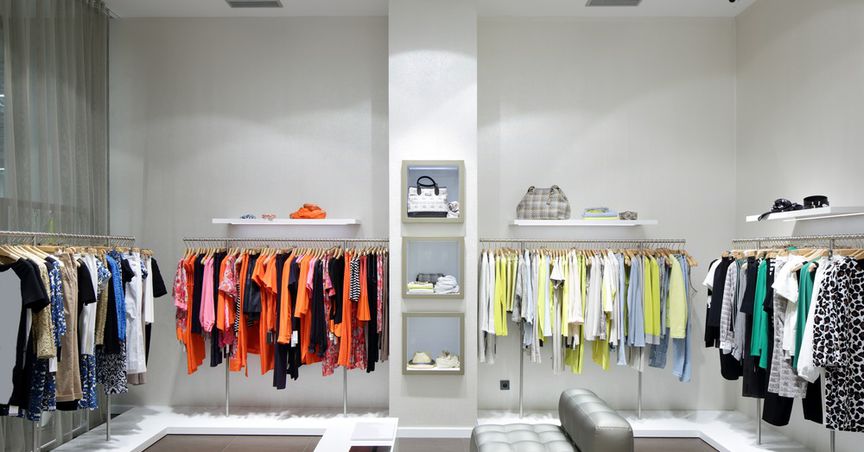Summary
- The fashion retailer is accused of spreading corona infections inside its factories
- Boohoo Group is likely to carry out an investigation on the accusations
- The greed of the businesses should not act as a catalyst for another wave of the pandemic
The fashion retailer, Boohoo Group Plc, recently drew a lot of criticism for exposing its workforce to the risk of the novel coronavirus and is being blamed for risking the coronavirus spread in Leicester.
Boohoo factories allegedly made its employees work in the premises, despite having corona infection. According to a report by Labour Behind the Label, clothing factories, which act as suppliers to these big brands, were operational during the national lockdown and they did not abide by the social distancing guidelines.
Claims that infected people were made to work in garment factories at Leicester
According to the garment workers' rights group, sick workers were denied pay and were forced to go to work during the national lockdown. The AIM listed retailer, Boohoo Group is likely to carry out an investigation and would not hesitate to take the required actions, if necessary, according to company sources.
The British government has extended the national lockdown beyond 4 July in Leicester, after a recent surge in the number of Covid-19 infections. The city would face a local lockdown, as it saw a sudden hike of 650 Covid-19 patients in a two weeks’ time frame. With around 1,000 sites in Leicester, the city is the hub of the garment industry in the United Kingdom and has the largest number of garment workforce.
As the nationwide lockdown was imposed on 23 March, the garment factories were supposed to shut their operations. However, some of these factories were still producing output and packed workers inside without any social distancing, which reflects the true picture of modern slavery. The elephant in the room, these sweatshops have gone unnoticed during the lockdown, according to some media reports. In the past, the city has fostered illegitimate working practices by exploiting illegal migrants.
The garment workers' rights group has also alleged that Boohoo Group is involved in a furlough fraud. The management of the company reportedly asked the workers to hide their payslips, so that they could make inflated claims through the job retention scheme launched by the UK government. If these allegations are found true, this could lead to a big reputational loss for the company as well as a close enquiry by the British government.
These factories ran at full capacity
The garment factories were operational during the lockdown due to sustained number of orders, sourced from Boohoo, which continued to operate online. These production facilities were reportedly run at full capacity. These garment factories are often housed in dilapidated buildings in the form of very small workshops. Ensuring social distancing guidelines are met while running at full strength in not feasible in the kind of infrastructure these factories operate. Boohoo Group and its sister brands reportedly source up to 70 per cent of their products form these garment factories located in Leicester.
Brief company background
Boohoo Group Plc (LON:BOO) is an online fashion brand founded in Manchester, UK. From humble beginnings of a market store in 2006, the fashion retailer successfully established its presence in the virtual world. The company is currently worth £ 4,878.23 million. The clothing style and outfits provided by the company resonate massively with teenagers and those in their early 20’s. With international presence in more than 200 countries, the company has a strong customer base. Boohoo’s products are Instagram favourites, appealing to those who wish to wear a different outfit each time they go out.
Also read: Boohoo, UK’s leading retail online fashion group is trading near its life-time high
The fashion retailer is known for its cost-effective pricing, with dresses from as little as £3 and shoes from little as £4. The company products are specifically targeted at women, who do not prefer to wear the same dress twice. Each time they go out, they like to wear a different outfit. The company tries to make fashionwear affordable. The budget fast-fashion company has a great competitive advantage over the industry. Most of the products are sourced through local vendors in the UK itself. This allows the company to beat the competition by getting their garments ready from the catwalk to their online warehouses within weeks.
Traditional garment manufacturers with production in the Far East could have a lead time of several months. This means by the time they get their clothes to the store/warehouse; the fashion is already out of date. This is where Boohoo Group has an upper hand. Boohoo leverages on the power of social media such as Instagram as a type of voting system. This voting system is used by them to display a selection of outfits to its potential customers. These customers can choose, vote, share and like the selection of outfits. Boohoo Group can review this data to identify the outfit designs which gain maximum traction and then ramp up production.
On the design side, Boohoo group tracks the celebrity fashion market and catwalk trends very closely. After Kim Kardashian, Ariana Grande or Rihanna post a new outfit pic on Instagram, Boohoo likes to have a very similar outfit in their online store within two weeks. They would upload hundreds of pieces online every day onto their website. This makes the company a true leader in the online fast-fashion domain.
(YTD-Chart of Boohoo Group Plc, Source: Refinitiv, Thomson Reuters)

The stock generated 29.56 per cent return on Year to Date basis on 6 July 2020 at 2.57 PM.
Let us discuss three things Boohoo Group should immediately investigate:
- Immediately check the facts about the accusation: Due to sudden spike in the number of cases in Leicester, the production facilities are now under the scanner. Hence the suppliers would not be able to cater to the orders sourced by the Boohoo Group, by which company could probably lose its competitive advantage over the industry as 70 per cent of the stock comes from Leicester.
- Correct wrong doings and do reputation-loss management: The factories were operating with infected people and this information is currently doing the rounds in the mainstream media. It is believed that the virus could be spread from infected surfaces. This could reduce the amount of confidence amongst the potential buyers which would mean reduced number of orders for the company, at least in the short term.
- Take well-calculated growth decisions: The Group acquired two well-established brands, Warehouse and Oasis, in the UK for £5.25 million from Hilco Capital Limited in cash. In the coming months, Boohoo will be integrating both the acquired brands to its platform. With the current level of uncertainties prevalent in terms of the political and environmental factors, the company is vulnerable to integration risks and desired synergies might not be achieved.
Also read: Boohoo Acquires Remaining 34% Stake of PrettyLittleThin-s.com
Finally, if the media reports are true, Boohoo has failed to put its workers before its profits, and that is not acceptable. It seems that the fashion retailers are not doing enough to protect the health of their workforce involved in their supply chains during the unprecedented times of the corona crisis. On the other hand, several companies have cut their production since they are not able to adhere to the government health safety guidelines, which is only fair. The greed of the businesses should definitely not act as a catalyst for spreading another wave of the pandemic. Closer investigations will reveal the truth and the company might attract penalties.





